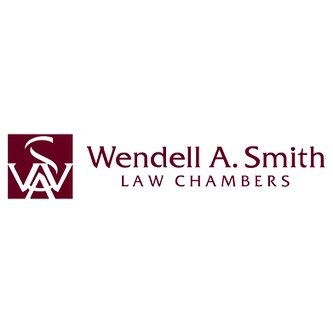Best Foreclosure Lawyers in Bahamas
Share your needs with us, get contacted by law firms.
Free. Takes 2 min.
Free Guide to Hiring a Real Estate Lawyer
Or refine your search by selecting a city:
List of the best lawyers in Bahamas
About Foreclosure Law in Bahamas
Foreclosure in the Bahamas is a legal process through which lenders can recover the amount owed on a defaulted loan by taking ownership and selling the mortgaged property. It typically involves the lender claiming the right to repossess and sell the property when a borrower fails to meet their mortgage obligations. The legal framework governing foreclosures in the Bahamas is intricate and involves several stages, making it essential for both lenders and borrowers to understand their rights and responsibilities.
Why You May Need a Lawyer
Legal assistance in foreclosure cases is advisable due to the complexity and seriousness of the matter. You may require a lawyer if you:
- Receive a notice of default or foreclosure.
- Need assistance in negotiating with lenders or understanding your legal options.
- Face complex mortgage agreements or suspect any predatory lending practices.
- Need to navigate court procedures and filings specific to the Bahamas legal system.
- Wish to explore alternatives to foreclosure, such as loan modifications or short sales.
Local Laws Overview
The foreclosure process in the Bahamas is governed by various laws and can be judicial or non-judicial:
- Judicial Foreclosure: This involves court action where the lender must file a lawsuit to initiate foreclosure. The court can order the sale of the property to satisfy the debt.
- Non-Judicial Foreclosure: Often faster and involves the power of sale clause in the mortgage agreement, where the property can be sold without court involvement.
- Contractual Rights: Mortgage agreements often include covenants that outline both parties' rights in the event of default.
- Ownership and Title: Ensuring clear title is crucial, as foreclosure impacts ownership rights significantly.
Frequently Asked Questions
What is the difference between judicial and non-judicial foreclosure in Bahamas?
Judicial foreclosure requires court involvement, while non-judicial foreclosure does not. The latter relies on a power of sale clause within the mortgage.
How long does the foreclosure process take in the Bahamas?
The duration can vary significantly depending on whether the process is judicial or non-judicial, ranging from a few months to over a year.
Can I stop a foreclosure once it has started?
Yes, there are potential ways to stop a foreclosure, such as reinstating the loan by paying overdue amounts, negotiating with the lender, or seeking legal assistance to explore alternatives.
Are there any alternatives to foreclosure?
Alternatives can include loan modifications, refinancing, short sales, or deeds in lieu of foreclosure.
What rights do I have as a borrower in a foreclosure procedure?
Borrowers have the right to receive proper notice, protect their rights through negotiation or court proceedings, and seek legal assistance.
How can a lawyer help in foreclosure proceedings?
A lawyer can negotiate with lenders, guide you through court processes, protect your legal rights, and help explore alternatives to foreclosure.
What happens if the property is sold for less than the remaining mortgage balance?
The lender may pursue a deficiency judgment to recover the remaining amount, although this depends on specific terms of the mortgage agreement.
Is there a redemption period in Bahamas foreclosure procedures?
The redemption period depends on the specific terms of the mortgage and the type of foreclosure. It allows a borrower to reclaim the property by paying off the debt.
What role does the court play in a judicial foreclosure?
The court must confirm that foreclosure conditions are met, oversee auction processes, and approve final sale terms.
Can bankruptcy affect foreclosure proceedings?
Bankruptcy can temporarily halt foreclosure proceedings, as the law typically imposes an automatic stay on all collections.
Additional Resources
For further assistance, individuals can reach out to:
- The Bahamas Bar Association for referrals and information on qualified lawyers.
- The Office of the Public Defender for legal aid and advice.
- Local real estate professionals for market advice and evaluation.
Next Steps
If you need legal assistance in foreclosure matters:
- Consider reaching out to local legal professionals with experience in foreclosure law.
- Gather all relevant documentation concerning your mortgage, payments, and any notices you may have received.
- Schedule consultations with potential attorneys to discuss your specific situation and explore your options.
- Explore alternative resolutions with your lender, potentially facilitated by your lawyer.
- Stay informed about ongoing legal procedures and maintain regular communication with your lawyer throughout the process.
Lawzana helps you find the best lawyers and law firms in Bahamas through a curated and pre-screened list of qualified legal professionals. Our platform offers rankings and detailed profiles of attorneys and law firms, allowing you to compare based on practice areas, including Foreclosure, experience, and client feedback.
Each profile includes a description of the firm's areas of practice, client reviews, team members and partners, year of establishment, spoken languages, office locations, contact information, social media presence, and any published articles or resources. Most firms on our platform speak English and are experienced in both local and international legal matters.
Get a quote from top-rated law firms in Bahamas — quickly, securely, and without unnecessary hassle.
Disclaimer:
The information provided on this page is for general informational purposes only and does not constitute legal advice. While we strive to ensure the accuracy and relevance of the content, legal information may change over time, and interpretations of the law can vary. You should always consult with a qualified legal professional for advice specific to your situation.
We disclaim all liability for actions taken or not taken based on the content of this page. If you believe any information is incorrect or outdated, please contact us, and we will review and update it where appropriate.
Browse foreclosure law firms by city in Bahamas
Refine your search by selecting a city.

















